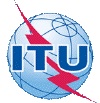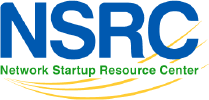About the Workshop
Background Information
The growing demand for wireless data transmission imposes the search for alternatives to the current spectrum exploration schemes. In the long term, dynamic spectrum access seems to be the only viable solution, once the technical details for its implementation are solved. In the near term, the use of currently vacant spectrum allocated to TV broadcast is poised to alleviate the spectrum crunch while opening the path for dynamic spectrum access. For machine to machine applications and the "Internet of Things" paradigm TV White Spaces have significant advantages both for developed and developing economies.
Nature of the Workshop
The participants in the workshop will be trained on applications of Open Spectrum and TV White Space technologies, in order to foster science and research. The workshop will consist of presentations, demonstrations and hands-on sessions. With the final goal of connecting Universities and Research Centres to the Internet, the Workshop intends to describe the state of the art in Open Spectrum in informative and hands-on ways.
Scope and Objectives
The workshop will include a mix of theoretical and practical sessions. Upon completion of this workshop, participants will be able to:
- understand the basics of radio physics, radio propagation and digital communication systems;
- understand the fundamentals of Software Defined Radios;
- design and deploy a point-to-point wireless link;
- understand the basics of wireless sensor networks for data collection in the field;
- understand the most relevant issues regarding spectrum management and the new approaches needed to cope with growing demand for wireless services;
- understand the issues involved in the planning and deployment of White Spaces terchnologies;
Organizers

For more than 45 years, the Abdus Salam International Centre for Theoretical Physics (ICTP) has been a driving force behind global efforts to advance scientific expertise in the developing world. Founded in 1964 by the late Nobel Laureate Abdus Salam, ICTP seeks to accomplish its mandate by providing scientists from developing countries with the continuing education and skills that they need to enjoy long and productive careers. ICTP has been a major force in stemming the scientific brain drain from the developing world. ICTP alumni serve as professors at major universities, chairpersons of academic departments, directors of research centres and ministers of science and technology in nations throughout the developing world. Many of them have been recognized in their own countries and internationally for their contributions to science and science policy. The impact of ICTP extends well beyond the Centre's facilities to virtually every corner of the Earth.
ICTP website »
The International Telecommunication Union, originally founded as the International Telegraph Union, is a specialized agency of the United Nations that is responsible for issues that concern information and communication technologies.The ITU coordinates the shared global use of the radio spectrum, promotes international cooperation in assigning satellite orbits, works to improve telecommunication infrastructure in the developing world, and assists in the development and coordination of worldwide technical standards. The ITU is active in areas including broadband Internet, latest-generation wireless technologies, aeronautical and maritime navigation, radio astronomy, satellite-based meteorology, convergence in fixed-mobile phone, Internet access, data, voice, TV broadcasting, and next-generation networks. ITU, based in Geneva, Switzerland, is a member of the United Nations Development Group. Its membership includes 193 Member States and around 700 Sector Members and Associates.
ITU website »
The Network Startup Resource Center (NSRC), based at the University of Oregon, was established in 1992 to provide technical assistance to organizations setting up computer networks in developing areas for collaborative research, education and international partnerships. Over the past twenty years, the NSRC has worked with universities, research institutes, Internet Service Providers, non-governmental organizations, governmental and supranational agencies, and industry to help develop networks and cyberinfrastructure resources in Africa, Asia/Pacific, Latin America/Caribbean, and the Middle East. The NSRC is partially funded by grant number 0963081 from the International Research Network Connections (IRNC) program of the National Science Foundation and Google, with additional contributions from dozens of public and private organizations.
NSRC website »
The Information Society Innovation Fund (ISIF Asia) is a grants and awards program aimed at stimulating creative solutions to ICT development needs in the Asia Pacific region, placing particular emphasis on the role of the Internet in social and economic development in the region, towards the effective development of the Information Society throughout. The program has supported 54 projects from 21 economies, allocating around AUD 1,5 million since 2009. The program operates thanks to the support of IDRC, Sida, APNIC, the Internet Society and the Dot Asia Organization.
ISIF website »